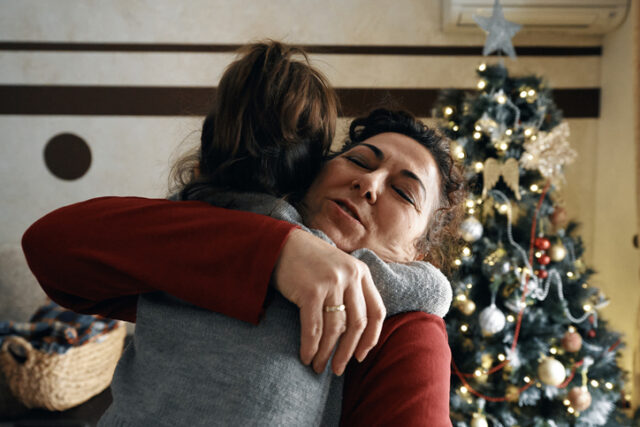Christmas is a season of joy, but for neurodivergent people — including those with autism, ADHD, or sensory processing issues — it can be a time of overwhelming sensory experiences.

That’s not to say that they don’t enjoy the festive period and that they can’t make the most of it, but it does tend to come with some extra challenges that are hard to navigate at times. Here are just a few of the reasons Christmas can lead to sensory overload for those with neurodivergence.
1. The constant noise of holiday music and chatter

Every shop, restaurant, and gathering seems to play non-stop Christmas tunes. Combine that with crowded spaces full of chatter, laughter, and clinking dishes, and it can quickly become too much. For neurodivergent people, filtering out all these sounds isn’t easy, and the constant noise can lead to exhaustion or irritability.
2. Bright, flashing Christmas lights everywhere

Twinkling lights and flashing decorations are a hallmark of the season, but they can be overstimulating. For some neurodivergent people, especially those sensitive to visual input, these bright, unpredictable lights can cause headaches, dizziness, or anxiety. What’s festive for some can be overwhelming for others.
3. Crowded spaces and busy social events

Christmas often means bustling markets, packed shops, and family gatherings full of people. The noise, movement, and sheer volume of social interaction can lead to sensory overload. For those who struggle with personal space or processing multiple stimuli at once, it can feel like too much, too fast.
4. Strong smells from candles, food, and decorations

The season brings an explosion of scents — cinnamon candles, pine trees, mulled wine, and festive feasts. While many people enjoy these aromas, neurodivergent individuals with heightened smell sensitivity can find them overwhelming or even nauseating. When scents are layered together, it can become difficult to tolerate.
5. Changes to routines and predictability

Neurodivergent people often rely on routines to feel secure and grounded. Christmas tends to disrupt schedules with holiday events, travel plans, and school breaks. These changes can cause stress and make it harder to manage sensory input, increasing the likelihood of feeling overwhelmed.
6. The pressure of social expectations

There’s often an expectation to attend gatherings, engage in conversation, and display festive cheer. For those who struggle with social communication or feel drained by interaction, this can be exhausting. The pressure to “fit in” or mask their true feelings can add another layer of sensory stress.
7. Uncomfortable holiday clothing

Christmas jumpers, party dresses, scratchy fabrics, and tight shoes might be fun for some, but for those with sensory sensitivities, they can feel unbearable. Itchy seams, tags, or restrictive outfits can become a source of constant irritation and contribute to sensory overload.
8. Unexpected or loud noises

From popping Christmas crackers to sudden laughter or loud bells, the holidays are full of jarring noises. These unexpected sounds can be startling or even painful for neurodivergent people who have heightened auditory sensitivity. A loud surprise can turn an otherwise pleasant event into a stressful one.
9. Overwhelming decorations and visual clutter

Christmas decorations can transform a home into a festive wonderland, but for some neurodivergent individuals, too much visual clutter is overwhelming. Rooms filled with tinsel, ornaments, and bright colours can create a sense of chaos, making it hard to focus or feel relaxed.
10. The sensory overload of gift-giving

Opening presents might seem like pure joy, but for neurodivergent people, it can be overwhelming. The rustling of wrapping paper, the expectation to show excitement, and the unpredictability of what’s inside can create stress rather than joy. It’s a lot to process in one go.
11. The unpredictability of holiday events

Surprises and last-minute plans are common during Christmas, but unpredictability can cause anxiety for neurodivergent people. Not knowing what to expect — who will be there, how long it will last, or what the environment will be like — can heighten feelings of being overwhelmed.
12. Too much sensory input without breaks

Christmas festivities can be relentless. When there’s no quiet time to recover, the accumulation of sensory input becomes overwhelming. Neurodivergent people often need breaks to regulate their senses, and the constant activity can leave them feeling frazzled or burnt out.




